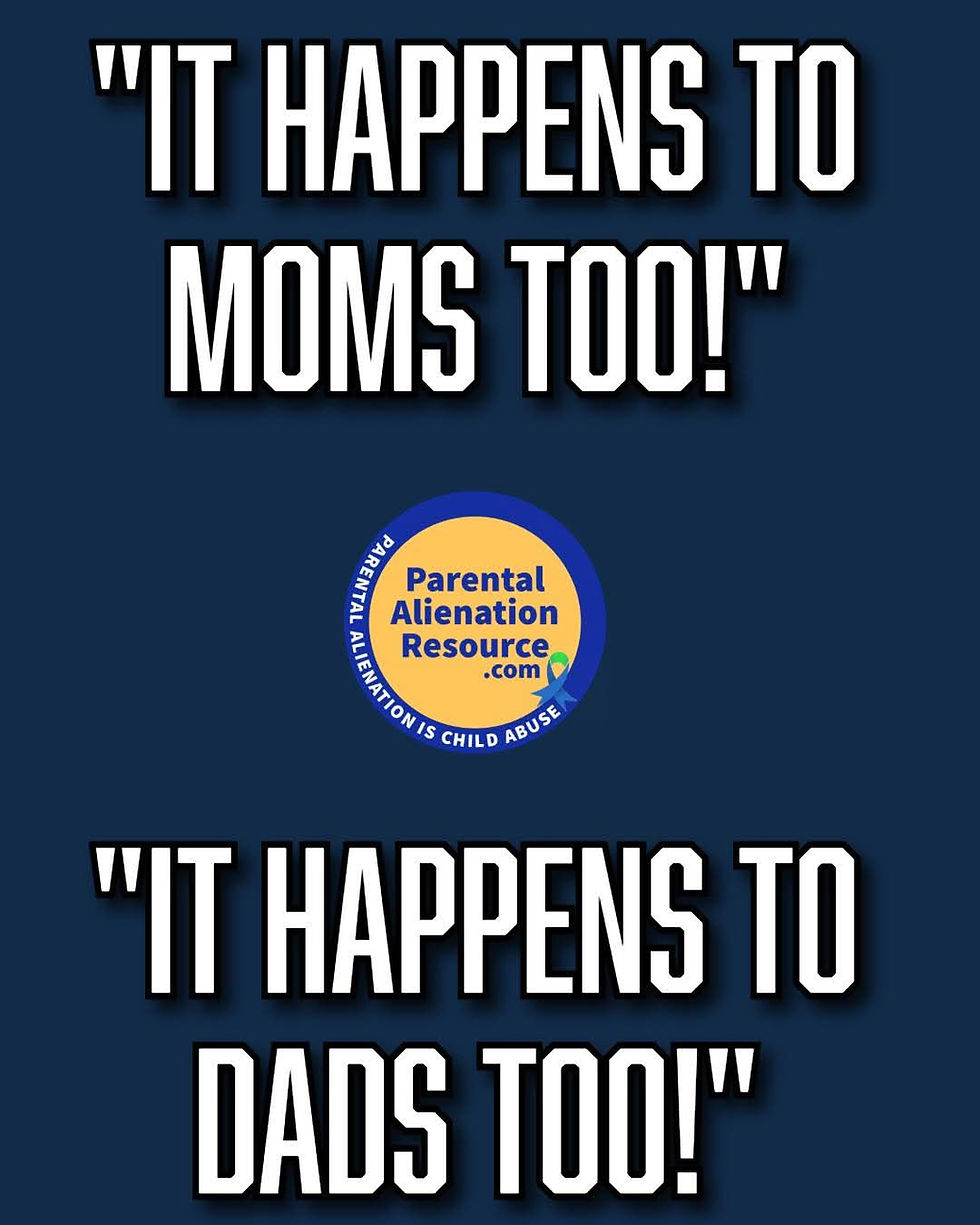The Dangers of Undiagnosed Parental Alienation in Child Therapy Sessions
- Parental Alienation Resource

- Aug 5, 2023
- 1 min read
Updated: Aug 17, 2023

Undiagnosed parental alienation in child therapy sessions can potentially cause more harm than good in several ways:
Reinforcing False Narratives: If the therapist is unaware of parental alienation dynamics, they may inadvertently reinforce false narratives created by the alienating parent. This can further perpetuate the child's negative perception of the alienated parent and hinder efforts to rebuild a healthy parent-child relationship.
Validating Alienation Tactics: Without recognizing parental alienation, the therapist might unintentionally validate or support the alienating parent's behavior. This can inadvertently reinforce the child's feelings of rejection, resentment, or anger towards the alienated parent, exacerbating the alienation process.
Failure to Address Underlying Issues: Parental alienation is often a symptom of deeper issues within the family dynamic, such as conflict between parents or unresolved emotional trauma. If these underlying issues are not properly addressed, the therapy sessions may fail to address the root causes, further perpetuating the alienation and preventing genuine healing and reconciliation.
Lack of Neutral Ground: Undiagnosed parental alienation may lead to an imbalance in therapy sessions, with the child feeling compelled to side with the alienating parent or express negative feelings towards the alienated parent. This lack of neutrality can hinder the therapeutic process and prevent the child from exploring their true emotions and experiences.
Missed Opportunities for Reunification: By failing to recognize parental alienation, therapy sessions may miss crucial opportunities to facilitate reunification between the alienated parent and the child. Without interventions aimed at rebuilding trust, fostering empathy, and promoting healthy communication, the therapeutic process may fall short.
It is crucial for therapists to be thoroughly trained in recognizing and addressing parental alienation dynamics to provide effective support for families in these situations.









Comments